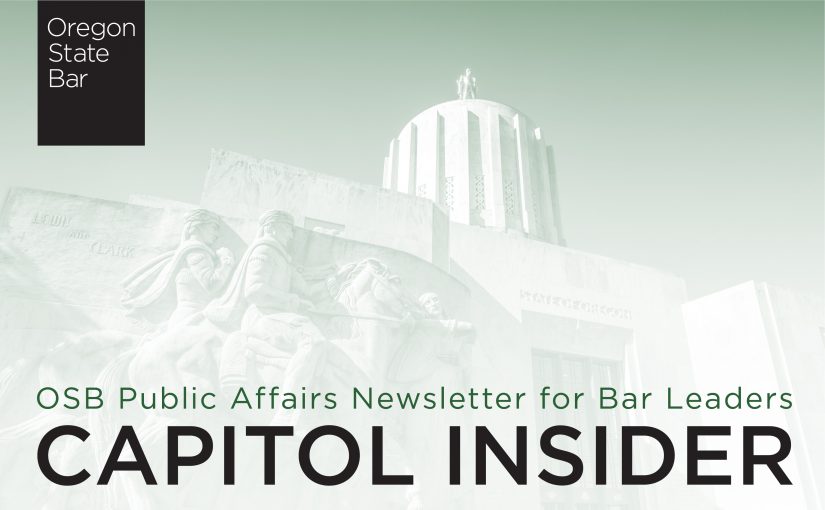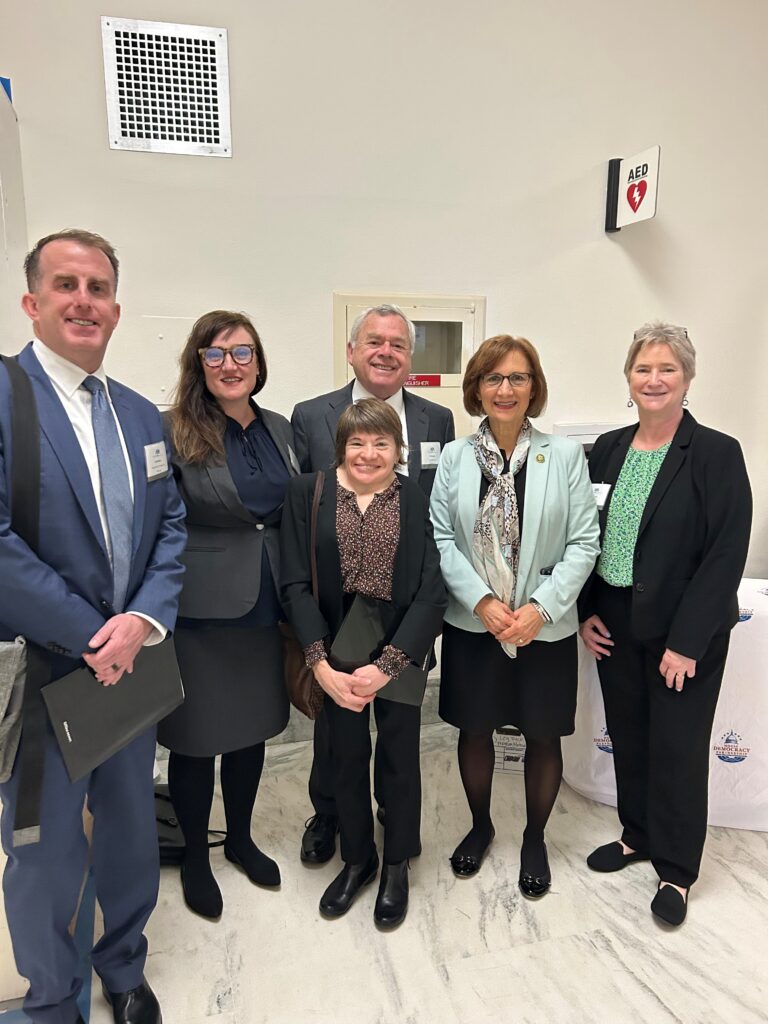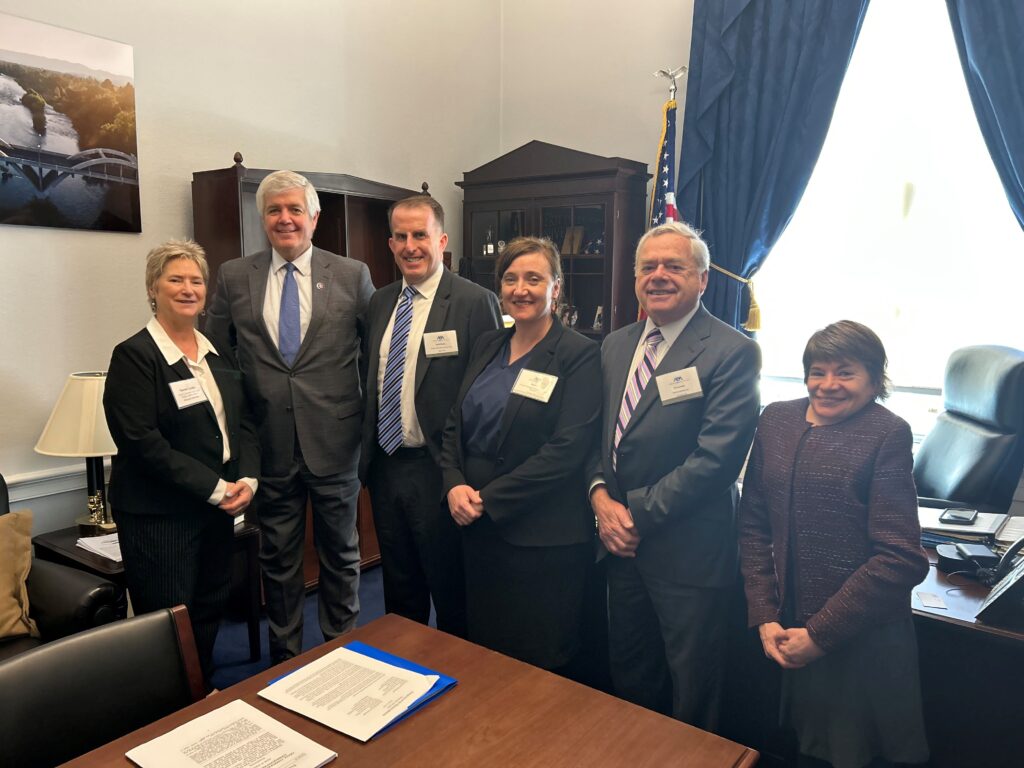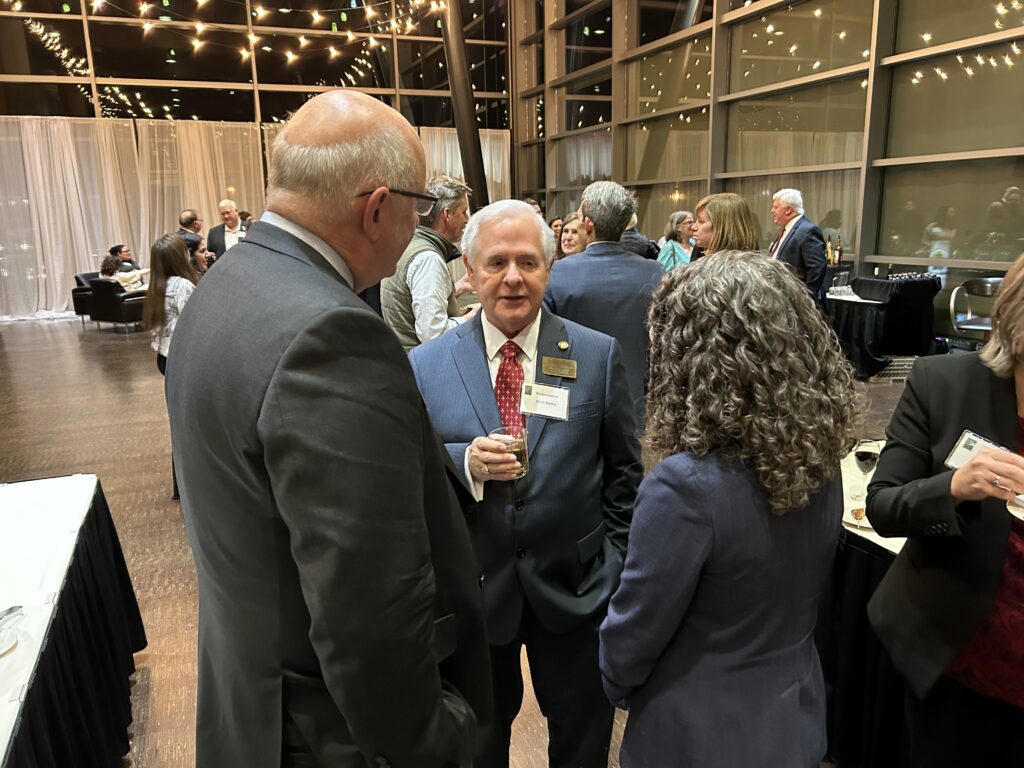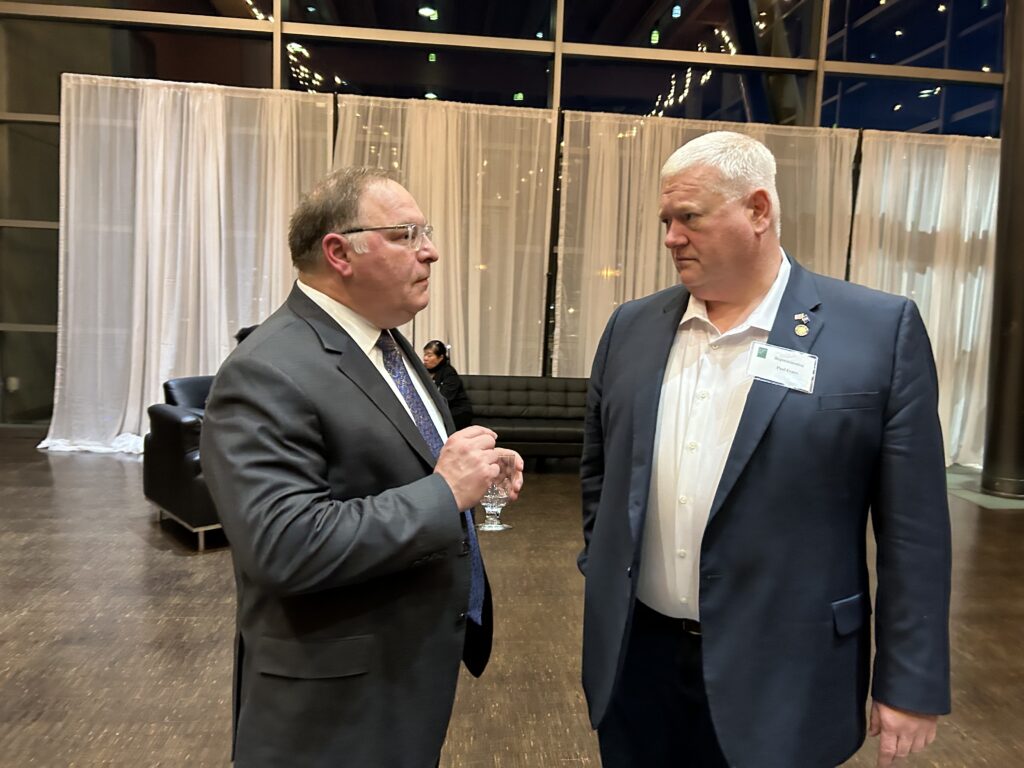Table of Contents
Public Defense Bills Pass Out of Committee
On June 9, the Joint Ways and Means Committee passed out two bills addressing Oregon’s public defense system. The first, SB 337, included a restructure of Oregon’s public defense commission. The second, SB 5532, is the budget bill for the new commission.
An overview of the changes made by SB 337 can be found in the previous Capitol Insider here. In addition, the bill was amended during a subcommittee committee meeting on June 6. Earlier this session, SB 1093, which creates regional task forces to address the unrepresented persons crisis, received a public hearing in the Subcommittee on Public Safety. This proposal was amended into SB 337 during the hearing on the 6th.
Under the amendment, the presiding judge of each judicial district with a population over 100,000 is charged with creating a crisis team made up of the presiding judge, district attorneys, and the public defense services executive director or designee, to create a “coordinated public safety unrepresented defendant crisis plan” to submit to the Oregon Criminal Justice Commission. A report is due back to the legislature in the fall of 2023.
SB 5532, the public defense budget bill, provides $535.5 million for the public defense commission for the 2023–2025 biennium. This is a total funds increase of 14.8 percent over the 2021–2023 legislatively approved budget.
Among other investments and technical adjustments, the bill includes new or continued investments to address the following:
-
- caseload adjustments;
- unrepresented defendant/person crisis;
- nonunanimous jury convictions;
- conversion of limited duration to permanent positions;
- the costs of county discovery costs.
In addition to the funding included in the budget, the public defense commission has been directed through three Budget Notes (page two of document) to do the following:
-
- Comprehensive Remediation Plan – report back to the legislature on the commission’s restructuring and modernization efforts.
- Quality Measurement Plan – develop a quality measurement plan for public defense and associated Key Performance Measures and Indicators.
- Internal Audit Function – report back to the legislature on internal audits, audits of provider contracts, and audit plans for the 2023–2025 biennium.
End of Session Policy Packages Moving through Ways and Means Committees
This session, because of the Senate’s inability to reach quorum and vote during floor sessions, a number of legislative priorities have been repackaged into policy packages within a bill focused on a single overarching subject matter. The legislature has created five separate bills focused on housing, water resources, health care, climate, and economic development. Each bill contains a number of legislative concepts.
-
- HB 3124 – Requires Water Resources Department to study drought. This bill has been assigned to the Subcommittee on Natural Resources but has not yet been scheduled for a hearing or work session.
- HB 3395 – Requires Housing and Community Services Department to study housing. This bill is scheduled for a work session in the Subcommittee on Capital Construction on June 9, 2023.
- HB 3396 – Requires Oregon Health Authority to study access to health care in Oregon. This bill is scheduled for a public hearing and work session in the Subcommittee on Capital Construction on June 9, 2023.
- HB 3409 – Requires Department of Environmental Quality to study climate. This bill passed out of the Subcommittee on Natural Resources on June 8, 2023.
- HB 3410 A – Appropriates moneys to Higher Education Coordinating Commission for distribution for purposes related to outdoor recreation economy. This bill moved out of the full Ways and Means Committee on June 2, 2023 and passed the House on June 8, 2023.
Of the five bills, two have been voted out of the subcommittee and two are scheduled for review in the subcommittee on Capital Construction on June 9, 2023. The Legislative Fiscal Office (LFO) has provided an index of programs within each bill that has been scheduled and the identified funding. To review the document, go to the bill link and then the “Analysis tab” on the ribbon. The LFO document will be accessible under that tab.
Legislature Introduces Bill to Create Independent Public Service Compensation Commission
On June 6, 2023 the Senate Rules Committee introduced Legislative Concept (LC) 4412 to create the Independent Public Service Compensation Commission. If passed, the commission will be tasked with determining the salaries of public elected officials including:
-
- Governor
- Secretary of State
- State Treasurer
- Attorney General
- BOLI Commissioner
- Oregon Supreme Court Justices
- Oregon Judges
- State Senators
- State Representatives
The proposed commission is limited and may not include officers or employees of the State of Oregon, lobbyists, and their immediate family members. The legislature may add additional criteria for commission membership. Under the proposal, funding for the salaries for the public officials will be drawn from the state’s General Fund based on the recommendations of the commission. If passed, LC 4412 is a constitutional amendment and will be referred to the ballot for consideration.
This session the Oregon Judicial Department introduced SB 233 to increase judicial compensation for trial and appellate court judges in Oregon. The bill is currently in the Joint Ways and Means Committee and has not been scheduled for a public hearing or work session.
Archives
Thank you for reading the Oregon State Bar’s CAPITOL INSIDER.
The archives are available here.
2023 Oregon State Bar Officers and Public Affairs Chair
Lee Ann Donaldson, President, Oregon State Bar
David Rosen, President Elect, Oregon State Bar
Kamron Graham, Immediate Past President, Oregon State Bar
Gabriel Chase, Chair, Public Affairs Committee, Oregon State Bar Board of Governors
For questions about articles, legislation, or the legislative process, please contact:
Susan Grabe, Public Affairs Director
Amy Zubko, Public Affairs Legislative Attorney
